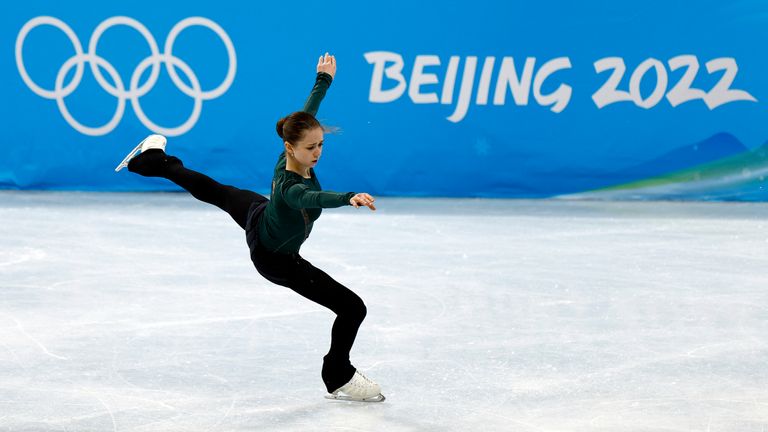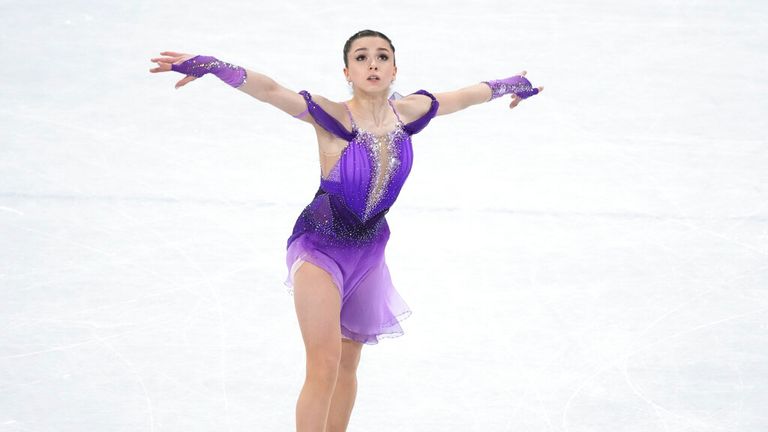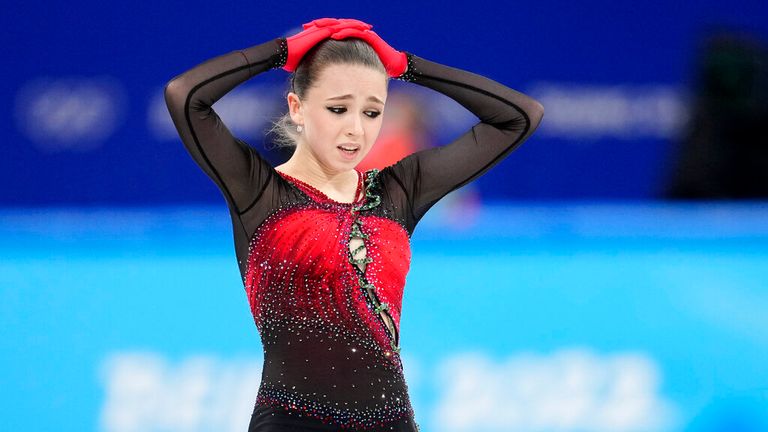A Russian teen accused of doping has been cleared to compete in figure skating at the Winter Olympics.
Kamila Valieva had failed a test for a banned substance, raising questions over whether she would be allowed to take part in her next event on Tuesday.
A sample from the 15-year-old was taken on Christmas Day - and on 8 February, it returned positive for trimetazidine, a heart medication.
What is trimetazidine - the drug at the centre of the Beijing Olympics doping scandal?
A separate investigation led by the Russian Anti-Doping Agency will determine whether the Russian skaters can keep the gold team medal they won with Valieva's help.
Why did the court rule in Valieva's favour?
The Court of Arbitration for Sport (CAS) cited "exceptional circumstances" for its decision, including Valieva's status as a "protected person" under the World Anti-Doping Code and "serious issues" in the "untimely" process of notifying her of her result.
The definition of a "protected person" includes athletes who have not yet turned 16 at the time of a doping violation.
The court also said preventing her from competing in the Games would cause her "irreparable harm".
It upheld a decision by the Russian Anti-Doping Agency to lift her provisional doping suspension - which had been appealed by the International Olympic Committee, the World Anti-Doping Agency (WADA) and the International Skating Union.
WADA criticised the ruling, saying the CAS panel decided not to apply the terms of the World Anti-Doping Code, which do not allow specific exceptions for "protected persons".
US 'disappointed' by the decision
The US Olympic and Paralympic Committee said it is "disappointed" by the message the ruling sends.
"Athletes have the right to know they are competing on a level playing field," said chief executive Sarah Hirshland.
"Unfortunately, today that right is being denied.
"This appears to be another chapter in the systemic and pervasive disregard for clean sport by Russia."
If the Russian figure skating medal is revoked, the US would be in line for gold, having won silver in the competition.
Valieva will now compete in the women's single event on Tuesday - for which she is a favourite for gold.
Her positive doping test was only revealed last week after her medal win.
Why was Valieva's test result delayed?
The CAS said the delay hampered Valieva's ability to "establish certain legal requirements for her benefit".
When the result came to light, the Russian Anti-Doping Agency immediately suspended her, then lifted the ban a day later.
WADA blamed the Russian agency for the six-week delay in the test result, saying it failed to tell the processing lab in Sweden that it needed to be fast-tracked.
The Russian Anti-Doping Agency will also lead the longer-term investigation that will determine whether Valieva can keep her medal - but WADA will be able to appeal the decision if it is not satisfied with the outcome.
WADA has also said it wants to investigate Valieva's entourage.
Travis Tygart, chief executive of the US Anti-Doping Agency, said: "Only time will tell if she should be competing in these Games and whether or not all of her results will be disqualified."
American 1998 Olympic champion figure skater Tara Lipinski said "this will leave a permanent scar on our sport".
https://news.google.com/__i/rss/rd/articles/CBMid2h0dHBzOi8vbmV3cy5za3kuY29tL3N0b3J5L2thbWlsYS12YWxpZXZhLXJ1c3NpYW4tdGVlbi1hY2N1c2VkLW9mLWRvcGluZy1jbGVhcmVkLXRvLWNvbXBldGUtaW4td2ludGVyLW9seW1waWNzLTEyNTQxNzA40gF7aHR0cHM6Ly9uZXdzLnNreS5jb20vc3RvcnkvYW1wL2thbWlsYS12YWxpZXZhLXJ1c3NpYW4tdGVlbi1hY2N1c2VkLW9mLWRvcGluZy1jbGVhcmVkLXRvLWNvbXBldGUtaW4td2ludGVyLW9seW1waWNzLTEyNTQxNzA4?oc=5
2022-02-14 08:48:45Z
1269108933



Tidak ada komentar:
Posting Komentar